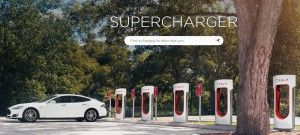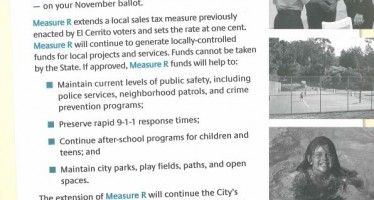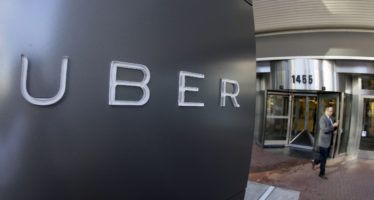Car-mileage fee debate accelerates
 The debate over gas taxes or mileage-based user fees to fund road construction and maintenance is accelerating. Proponents of gas tax increases argue now is the time to proceed because lower gasoline prices would lessen the blow on consumers and blunt political opposition.
The debate over gas taxes or mileage-based user fees to fund road construction and maintenance is accelerating. Proponents of gas tax increases argue now is the time to proceed because lower gasoline prices would lessen the blow on consumers and blunt political opposition.
In California, a commission to study road usage charges and establish a pilot program for mileage charges has begun meeting. It’s called the California Road Charge Pilot Program Technical Advisory Committee.
Assembly Speaker Toni Atkins, D-San Diego, has revealed her quest for non-specific fees to pay for road maintenance.
Fuel taxes have been used as the prime method to fund roads since Oregon implemented a gas tax in 1919. Because fuel taxes are charged per gallon, the tax revenue has dropped proportionately with the advent of electric, hybrid and fuel-efficient vehicles.
Taxpayer advocates have complained that money for the roads has been used for other purposes, especially during the recession. Meanwhile, some electric car users say the gas tax should be increased as if there is no cost to the roads from electric vehicles, even though electric car manufacturers and purchasers have received subsidies from the state.
Perhaps surprising to some, the idea of a mileage user fee is supported by the small government, libertarian Reason Foundation and one of its founders, transportation expert Robert Poole. Along with Adrian Moore, Poole last year produced a report supporting mileage based user fees for highways, “Ten Reasons Why Per-Mile Tolling Is a Better Highway User Fee than Fuel Taxes.”
While the study expressly deals with federal highways, the discussion over mileage-based fees also could apply to state roads.
Reason’s 10 reasons
As Poole summarized the 10 reasons reasons:
- Reason 1: Per-mile tolling is a direct, rather than indirect, user fee. Motorists would pay for the amount of service they received; they would pay providers directly for providing that service; and they would know exactly how much they were paying and what they were getting for it.
- Reason 2: Per-mile tolling is a sustainable long-term funding source for long-term infrastructure, which does not depend on the energy source used to propel the vehicles. Its transparency should help rebuild trust in the highway funding system.
- Reason 3: Per-mile tolls can be tailored to the cost of each road and bridge, rather than being averaged across all types of roads, from neighborhood streets to massive Interstates; this ensures adequate funding for major highway projects like Interstate reconstruction and modernization.
- Reason 4: Per-mile tolling reflects greater fairness, since those who drive mostly on Interstates will pay higher rates than those who drive mostly on local streets.
- Reason 5: If per-mile tolling is implemented as a true user fee, it will be self-limiting, dedicated solely to the purpose for which it was implemented (and enforceable via bond covenants with those who buy toll revenue bonds).
- Reason 6: Per-mile tolling will guarantee proper ongoing maintenance of the tolled corridors, since bond-buyers and other investors legally require this as a condition of providing the funds.
- Reason 7: Per-mile tolling also provides a ready source of funding for future improvements to the tolled corridor.
- Reason 8: Toll financing means needed projects, such as reconstruction and widening, can be done when they are needed, and paid for over several decades as highway users enjoy the benefits of the improved facilities.
- Reason 9: A per-mile tolling system using all-electronic tolling can easily implement variable pricing on urban expressways to reduce and manage traffic congestion.
- Reason 10: Per-mile tolling would be the first big step toward replacing fuel taxes with mileage-based user fees — something that most of the transportation research and policy community has concluded should eventually happen.
Direct charge
Concluded Poole:
“As this policy brief makes clear, the fuel tax was never an ‘ideal user fee.’ It should be replaced with a direct charge for highway services that is sustainable, fair, efficient and — for major highways and bridges — tailored to the capital and operating cost of individual facilities. This system should not create privacy concerns by enabling governments to track where and when people travel, and should give motorists choices in how to pay for their miles traveled.”
Others have argued that money for the roads should come from state surpluses or from re-directing revenues dedicated to the high-speed rail project.
The debate over road maintenance costs has begun in earnest.
Related Articles
Is local tax measure success a sign of things to come?
As usual, Michael Coleman’s California City Finance website has an excellent recap of local tax measures and how they fared in
Kashkari would veto gun bills
GOP candidate Neel Kashkari assured gun owners Friday he’s opposed to controversial gun-control measures now sitting on the desk of
San Francisco sues Uber in battle over driver privacy
SACRAMENTO – The city of San Francisco filed suit last week against the ride-sharing service Uber after the company filed




